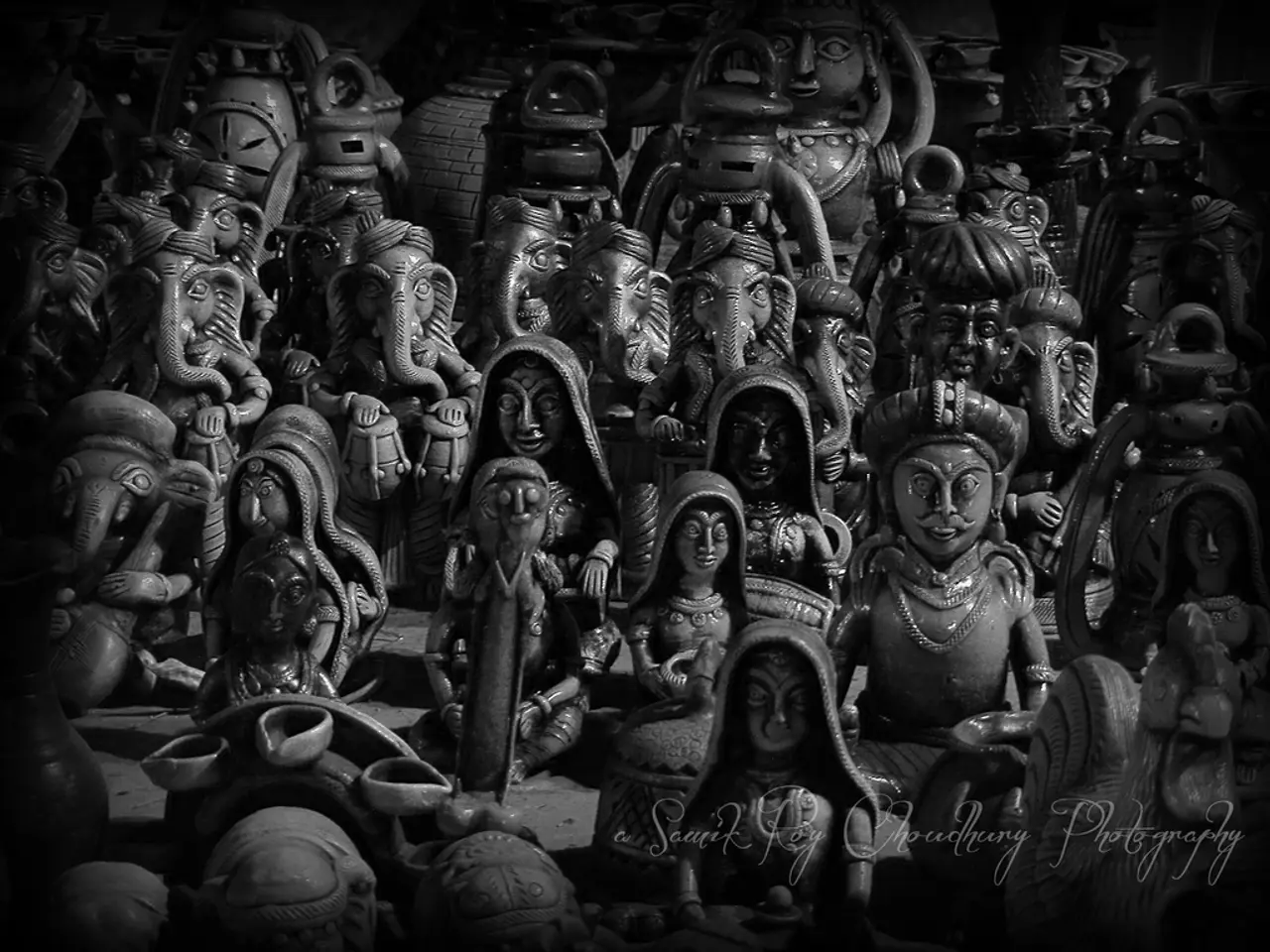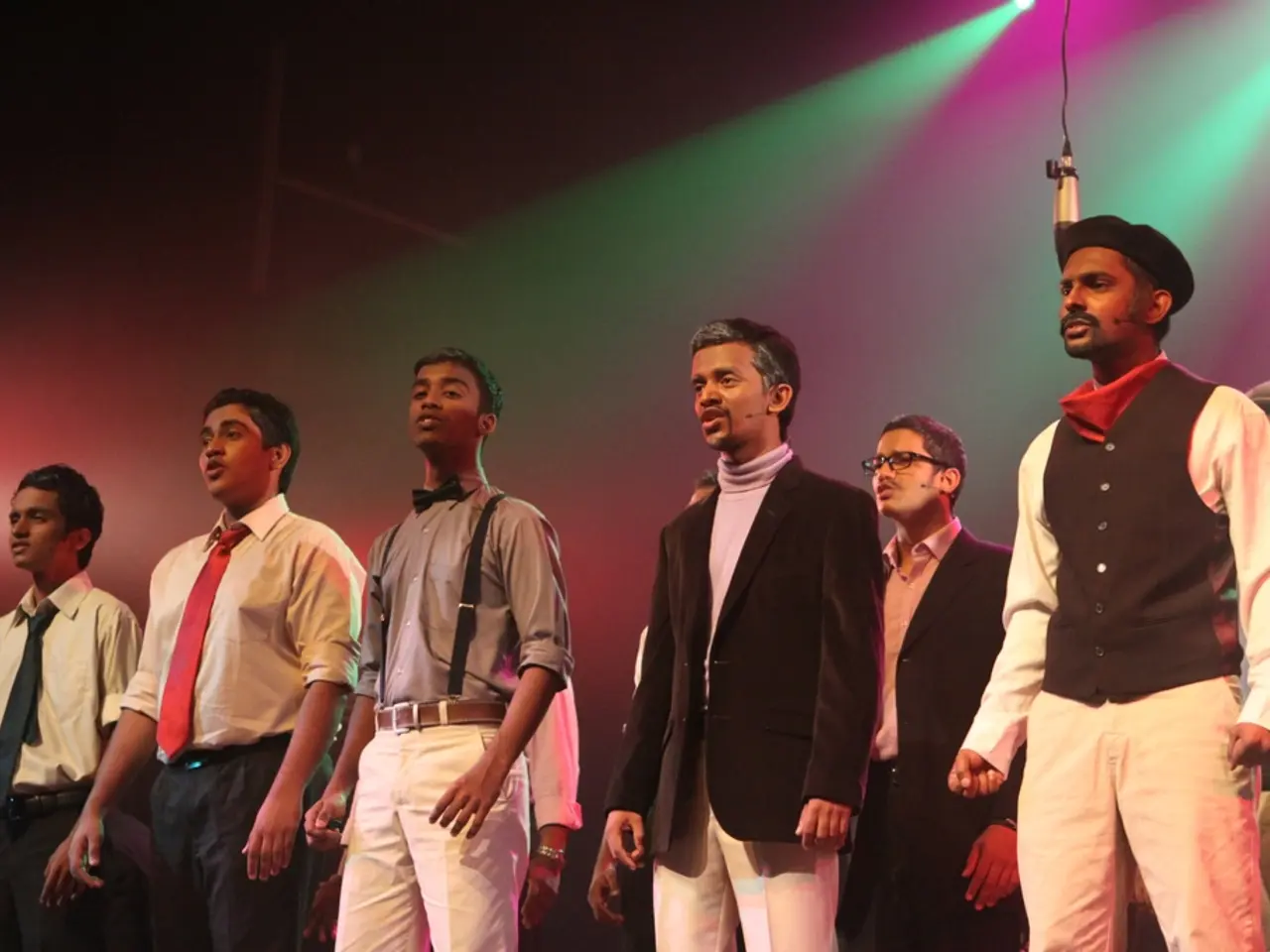Cinema's Growing Influence of Chinese-American Actors and Filmmakers
Anna May Wong, born in 1905 to Chinese immigrant parents in Los Angeles, California, became a trailblazer for Asian representation in Hollywood. Wong, who left high school to focus on acting, gained international recognition as the first Chinese American movie star[1][2][3].
Timeline and Key Career Highlights
Wong's career spanned over five decades, beginning with her first role as an extra in the 1919 silent film "The Red Lantern." In 1922, she landed her first lead role in the silent film "The Toll of the Sea," which brought her strong critical acclaim[1][4]. Throughout the 1920s, Wong acted in both silent films and talkies, including "The Thief of Bagdad" (1924) and "Drifting" (1923). However, she was often typecast in stereotypical Asian supporting roles and was limited by anti-miscegenation laws prohibiting romantic leads opposite white actors[1].
Frustrated by Hollywood discrimination, Wong founded her own film production company in the late 1920s. Despite business issues, this move marked her determination to break barriers and create opportunities for herself[1]. She moved to Europe, where she acted in films and on stage, notably in London’s The Circle of Chalk (1929)[1]. Wong continued making films throughout the 1930s, including the well-known "Shanghai Express" (1932)[3].
Throughout her career, Wong appeared in over 50 films, becoming a style icon and a trailblazer for Asian-American actors, despite the limited and often stereotypical roles available[3][4].
Impact on Asian Representation in Hollywood
Wong was a barrier breaker, earning international stardom in a predominantly white and racially biased industry. She challenged prevailing racial stereotypes and restrictions in casting, paving the way for future generations of Asian actors[2][5]. Her career highlighted both the possibilities and limitations for Asian performers in Hollywood’s Golden Age, particularly issues such as typecasting and racial prejudice.
Wong's life and work continue to inspire scholarship and media exploring the representation of Asians in film. Her legacy is exemplified by recent biographies and retrospectives recognizing her importance[2][5]. Anna May Wong's career symbolizes both the early challenges and gradual progress in Asian representation in American cinema, marking her as a foundational figure in Hollywood history.
Modern-Day Representation: A New Era
Fast-forward to the modern era, and the landscape of Asian representation in Hollywood has evolved significantly. Films like Crazy Rich Asians (2018), a contemporary romantic comedy following Rachel Chu, a modest economics professor from Queens, who travels to Singapore for a wedding and meets her boyfriend's mogul rich Singaporean family[6], and Minari (2020), an indie film about a Korean-American family who moves to a small farm in Arkansas[7], have brought fresh perspectives and diverse stories to the forefront.
More recently, films like Everything Everywhere All At Once (2022), which uses fantastical settings to explore the "nothingness" of life and the importance of human connection in an Asian American family[8], and The Joy Luck Club (1993), a groundbreaking film focusing on the complexities and experiences of Chinese-American women[9], continue to push boundaries and challenge stereotypes, much like Anna May Wong did in her time.
Wong's pioneering spirit lives on, as she continues to inspire a new generation of Asian actors and filmmakers to break barriers, challenge stereotypes, and tell their stories on the silver screen.
[1] https://www.biography.com/actor/anna-may-wong [2] https://www.pbs.org/independentlens/films/annamay-wong-a-life-in-acting/ [3] https://www.tcm.com/tcmdb/person/56784%7C106416/Anna-May-Wong/biography.html [4] https://www.britannica.com/biography/Anna-May-Wong [5] https://www.hollywoodreporter.com/features/anna-may-wong-first-asian-american-movie-star-1234785677/ [6] https://www.imdb.com/title/tt7116606/ [7] https://www.imdb.com/title/tt12392352/ [8] https://www.imdb.com/title/tt13601266/ [9] https://www.imdb.com/title/tt0109866/
- Anna May Wong, despite facing stereotypical roles and racial prejudice during her five-decade career in Hollywood, challenged prevailing racial stereotypes and paved the way for future generations by breaking barriers and creating opportunities in Asian representation in film.
- In the modern era, films like Crazy Rich Asians, Minari, Everything Everywhere All At Once, and The Joy Luck Club have brought fresh perspectives, diverse stories, and continued challenges to stereotypes, honoring the pioneering spirit of Anna May Wong and her impact on Asian representation in Hollywood.




